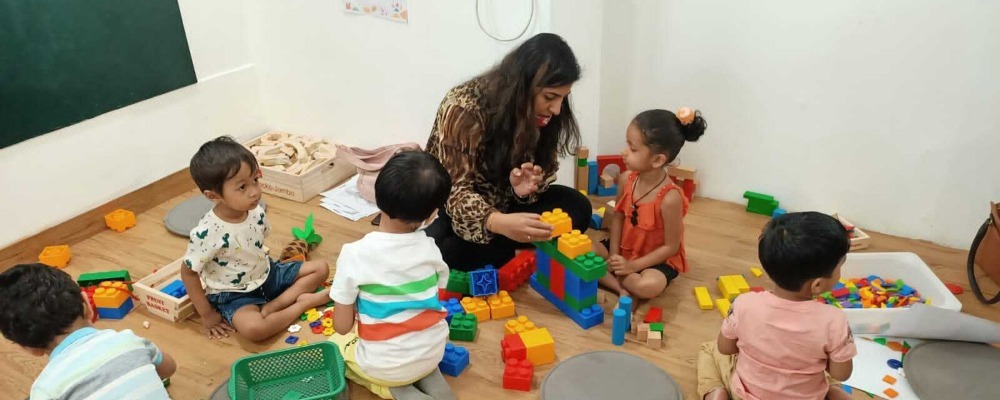
Every interaction that you have with your child is a form of communication. It is not only verbal communication but also non-verbal communication that conveys messages to your child. The way you communicate teaches your child how to express themselves, shapes their emotional development and is a foundation for building relationships.
Verbal communication includes the words you say, pitch and tone of voice and dialect. Non-verbal communication includes eye contact, facial expressions, hand gestures and physical touch like a hug.
Let us look at a few ways to effectively communicate with your child.
Active listening –
Actively listening helps the child feel heard and understood.When your child is
talking put aside everything and be completely present with them. Encouraging smiles and
affirming nods show that you are engaged with what your child is saying. Looking at them at eye
level helps your child feel safer and connected with you. Asking questions in the middle of the
conversation also shows that you are listening intently to what is being said.
Speaking clearly –
Use language that is easy and age appropriate for your child. Be simple, clear
and specific. Do not use unkind words or derogatory language. Always set your intent on what you
want to convey to your child before speaking. Using positive language helps set an example for
your child. This ensures that the child feels respected and loved.
Explain feelings –
This is very important for your child to develop emotional intelligence. When your child is expressing his/her feelings, listen to what they have to say with empathy and without
judgement. Put yourself in their shoes and try to see their viewpoint. Help them to express their
feelings in words such as happy, relaxed, proud, sad, hungry, angry, embarrassed etc. This helps
to understand their emotions and feelings distinctively.
Leading by example –
This is very important as parents are a child's introduction to the world.
What your child sees you do is as important as what they hear you say. Only make a promise to
your child that you are sure you can keep. This helps to build and maintain trust between you and
your child. Children also observe how parents behave with others and this sets an example for
their social interactions in future.
Focus on behaviour –
If you’re upset about the behaviour of your child, make sure that your
criticism and comments is directed towards that behaviour and not towards the child. For example
instead of, “ I don't like that you are messy” can be reframed into, “ I don't like when you leave your toys all over the floor”. This will ensure that the child corrects that behaviour without feeling resistant or bitter.
Having fun together –
Talk with your child about the days activities, different topics such as TV
programmes, videos, games, books and toys. Involve them in day to day activities and also ask
them their views and thoughts regarding different subjects. This way children will learn easily by
taking in information through daily interactions and experiences around them.
Go ahead and build strong communication skills in your child in a joyful manner.

